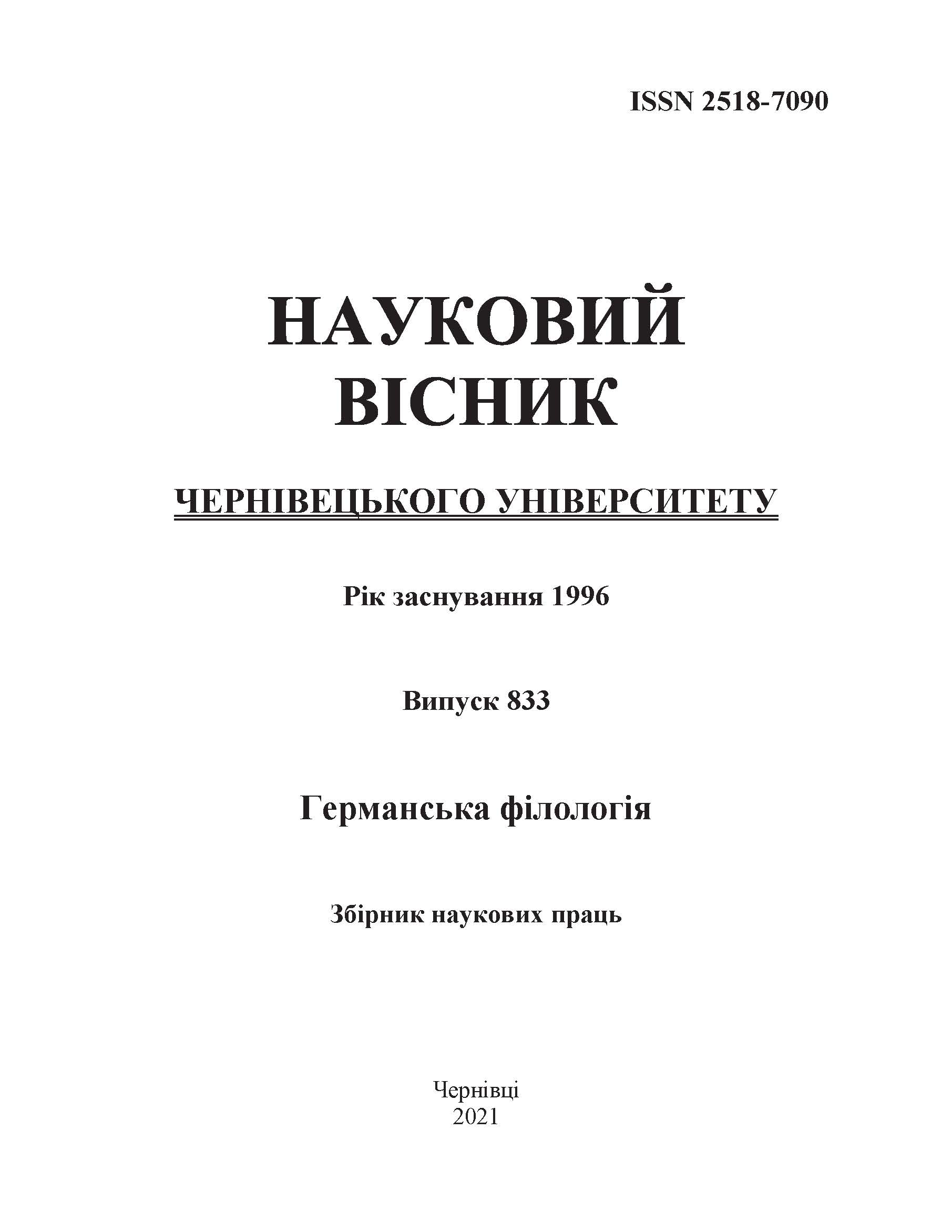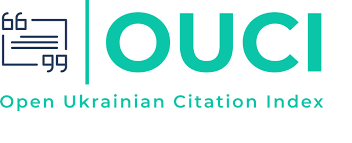КОНЦЕПТУАЛЬНЕ ПОЛЕ „GLÜCK“ У НІМЕЦЬКОМОВНОМУ ДИСКУРСІ
DOI:
https://doi.org/10.31861/gph2021.833.3-12Ключові слова:
концепт, вербалізатор, кореляційний аналіз, концептуальне поле, концептуальна ділянка, ядро, периферіяАнотація
У науковій розвідці особливу увагу приділено термінам „концепт“ та „концептуальне поле“, які відіграють надзвичайно важливу роль у розумінні процесів концептуалізації навколишнього світу у свідомості людини. Обгрунтовується трактування концептуального поля як стійкого угруповання типологічно й семантично однорідних та ієрархічно впорядкованих концептів.
Розглядаються принципи моделювання концептуального поля „Glück“ в німецькомовному дискурсі. Досліджуються засоби вербалізації концепту „Glück“, а саме: набір іменникових лексем на позначення позитивних емоцій (лексема „Glück“ та зафіксовані в текстах синоніми до неї: Glück, Freude, Geschick, Heil, Hochgefühl, Schwein, Segen, Wonne.). На основі аналізу сполучень позитивно маркованих емотивних іменників з дієсловами, які покривають певні ділянки в досліджуваному концептуальному полі, реконструюється структура концептуального поля „Glück“ у німецькомовному дискурсі. Відмічено концептуальні ділянки, які становлять ядро, а також ближню та дальню периферію. Визначено ступінь зв'язку між різними концептуальними ділянками і виявлено ділянки, які демонструють сильний, середній або слабкий зв'язок. Встановлено кореляційні зв'язки між концептуальними ділянками, кожна з яких, утворюючи фігури різної конфігурації, розглядається як єдиний концептуальний комплекс. Залучення методів структурної лінгвістики при дослідженні концептуальних процесів забезпечило отримання релевантних об'єктивних даних про актуалізацію емоційного концепту „Glück“ в німецькій художній прозі ХХ століття.
У підсумку пропонується власне розуміння терміну „концептуальне поле“, яке трактується як сукупність концептуальних сфер (концептуальних ділянок), поєднаних системними, взаємозалежними та взаємодоповнювальними відношеннями, яке покривається одиницями лексичного поля (словами) і в межах якого функціонують і реалізують свої значення одиниці лексичного рівня.
Визначено структуру концептуального поля „Glück“: ядро складають концептуальні ділянки „дієслова руху та переміщення”, „дієслова на позначення виникнення, появи, настання” та „ дієслова просторової локалізації”. Ближню периферію формують: „дієслова дії“, „дієслова релятивної семантики“, „дієслова стану, процесу“, „дієслова буття“, „дієслова ментальних та соціальних дій суб’єкта“. До дальньої периферії належать такі концептуальні ділянки: „дієслова звучання та звуконаслідування“, „дієслова характеризації“, „модальні дієслова“.







